Related Research Articles

Eric Arthur Blair was an English novelist, poet, essayist, journalist and critic who wrote under the pen name of George Orwell. His work is characterised by lucid prose, social criticism, opposition to all totalitarianism and support of democratic socialism.

Keep the Aspidistra Flying, first published in 1936, is a socially critical novel by George Orwell set in 1930s London. The main theme is Gordon Comstock's romantic ambition to defy worship of the money-god and status, and the dismal life that results.
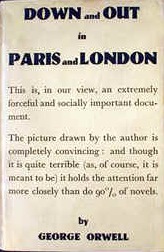
Down and Out in Paris and London is the first full-length work by the English author George Orwell, published in 1933. It is a memoir in two parts on the theme of poverty in the two cities. Its target audience was the middle- and upper-class members of society—those who were more likely to be well educated—and it exposes the poverty existing in two prosperous cities: Paris and London. The first part is an account of living in near-extreme poverty and destitution in Paris and the experience of casual labour in restaurant kitchens. The second part is a travelogue of life on the road in and around London from the tramp's perspective, with descriptions of the types of hostel accommodation available and some of the characters to be found living on the margins.

Coming Up for Air is the seventh book and fourth novel by the English writer George Orwell, published in June 1939 by Victor Gollancz. It was written between 1938 and 1939 while Orwell spent time recuperating from illness in French Morocco, mainly in Marrakesh. He delivered the completed manuscript to Victor Gollancz upon his return to London in March 1939.
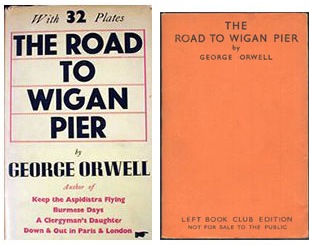
The Road to Wigan Pier is a book by the English writer George Orwell, first published in 1937. The first half of this work documents his sociological investigations of the bleak living conditions among the working class in Lancashire and Yorkshire in the industrial north of England before World War II. The second half is a long essay on his middle-class upbringing, and the development of his political conscience, questioning British attitudes towards socialism. Orwell states plainly that he himself is in favour of socialism, but feels it necessary to point out reasons why many people who would benefit from socialism, and should logically support it, are in practice likely to be strong opponents.
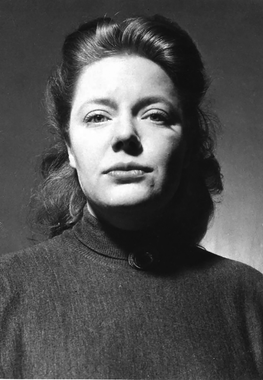
Sonia Mary Brownell, better known as Sonia Orwell, was the second wife of writer George Orwell. Sonia is believed to be the model for Julia, the heroine of Nineteen Eighty-Four.

A Clergyman's Daughter is a 1935 novel by English author George Orwell. It tells the story of Dorothy Hare, the titular clergyman's daughter, whose life is turned upside down when she suffers an attack of amnesia. It is Orwell's most formally experimental novel, featuring a chapter written entirely in dramatic form, but he was never satisfied with it and he left instructions that after his death it was not to be reprinted. Despite these instructions, Orwell did consent to the printing of cheap editions "of any book which may bring in a few pounds for my heirs" following his death.
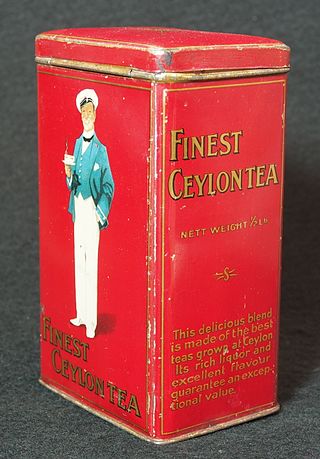
"A Nice Cup of Tea" is an essay by English author George Orwell, first published in the London Evening Standard on 12 January 1946. It is a discussion of the craft of making a cup of tea, including the line: "Here are my own eleven rules, every one of which I regard as golden."
"Such, Such Were the Joys" is a long autobiographical essay by the English writer George Orwell.
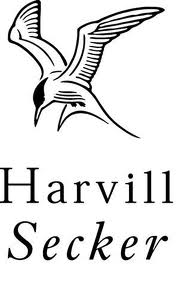
Harvill Secker is a British publishing company formed in 2005 from the merger of Secker & Warburg and the Harvill Press.
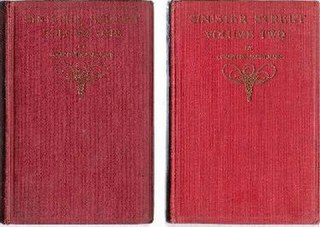
Sinister Street is a 1913–1914 novel by Compton Mackenzie. It is a kind of Bildungsroman, or novel about growing up, and concerns two children, Michael Fane and his sister Stella. Each of them is born out of wedlock, something that was frowned on at the time, but to rich parents.
"The Lion and the Unicorn: Socialism and the English Genius" is an essay by George Orwell expressing his opinions on the situation in World War II-era Britain. The title alludes to the heraldic supporters appearing in the full royal coat of arms of the United Kingdom.
"As I Please" was a series of articles written between 1943 and 1947 for the British left-wing newspaper Tribune by author and journalist George Orwell.
"Politics vs. Literature: An Examination of Gulliver's Travels" is a critical essay published in 1946 by the English author George Orwell. The essay is a review of Gulliver's Travels with a discussion of its author Jonathan Swift. The essay first appeared in Polemic No 5 in September 1946.
"My Country Right or Left" is an essay published in 1940 by the English author George Orwell. In it Orwell seeks to reconcile his intense feeling of patriotism and his left-wing views.

The bibliography of George Orwell includes journalism, essays, novels, and non-fiction books written by the British writer Eric Blair (1903–1950), either under his own name or, more usually, under his pen name George Orwell. Orwell was a prolific writer on topics related to contemporary English society and literary criticism, who has been declared "perhaps the 20th century's best chronicler of English culture." His non-fiction cultural and political criticism constitutes the majority of his work, but Orwell also wrote in several genres of fictional literature.
Ian Angus was a British librarian and a scholar on George Orwell.
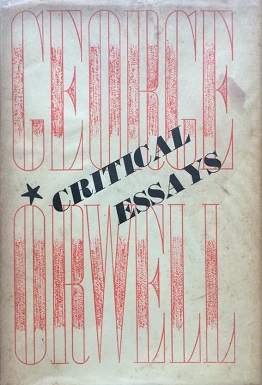
Critical Essays (1946) is a collection of wartime pieces by George Orwell. It covers a variety of topics in English literature, and also includes some pioneering studies of popular culture. It was acclaimed by critics, and Orwell himself thought it one of his most important books.
Storm over Spain is a book by Mairin Mitchell, a pacifist commentary on the Spanish Civil War published in 1937, during the war.

"Reflections on Gandhi" is an essay by George Orwell, first published in 1949, which responds to Mahatma Gandhi's autobiography The Story of My Experiments with Truth. The essay, which appeared in the American magazine Partisan Review, discusses the autobiography and offers both praise and criticism to Gandhi, focusing in particular on the effectiveness of Gandhian nonviolence and the tension between Gandhi's spiritual worldview and his political activities. One of a number of essays written by Orwell and published between Animal Farm (1945) and Nineteen Eighty-Four (1949), "Reflections on Gandhi" was the last of Orwell's essays to be published in his lifetime and was not republished until after his death.
References
- 1 2 The Orwell Prize: "Some Thoughts on the Common Toad". Retrieved 17 June 2013.
- ↑ Taylor, D. J., Orwell: The Life. Chatto & Windus, 2003.
- ↑ Orwell, Sonia, and Ian Angus (1968), The Collected Essays, Journalism and Letters of George Orwell. Volume 3. As I Please 1943-1945, p. 105. Penguin ISBN 0-14-003153-7.
- ↑ Crick, Bernard, Orwell: The Life. Secker & Warburg, 1980.
- ↑ From the Orwell archive - Bernard Crick, Orwell: The Life. Secker & Warburg, 1980.
- ↑ Collected Works: Smothered Under Journalism, p. 241.